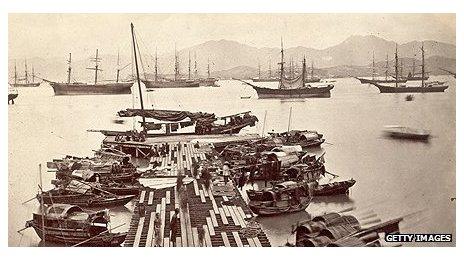Hong Kong activist Nathan Law denies seeking independence
- Published
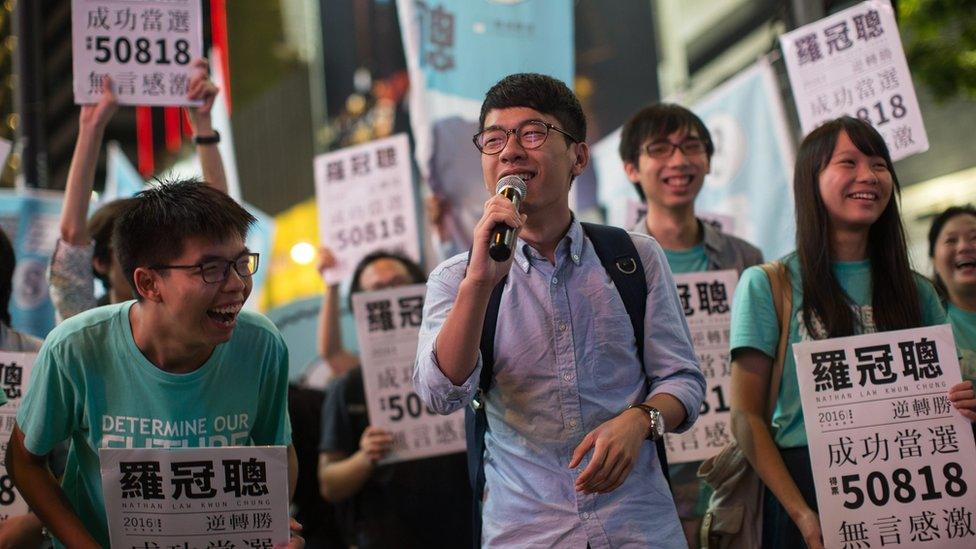
Nathan Law will become Hong Kong's youngest legislator at 23-years-old
Leading Hong Kong pro-democracy activist Nathan Law has said he will not use his newly-won seat on the Legislative Council (LegCo) to push for independence from China.
"I'm not advocating independence, I'm advocating Hong Kong people should enjoy [their] rights of self-determination," he told the BBC.
China has warned that anyone advocating independence could be punished.
The stern message came after several young activists won seats on LegCo.
The Chinese government underlined its "resolute opposition" to any independence activities on the council or outside it, state media reported.
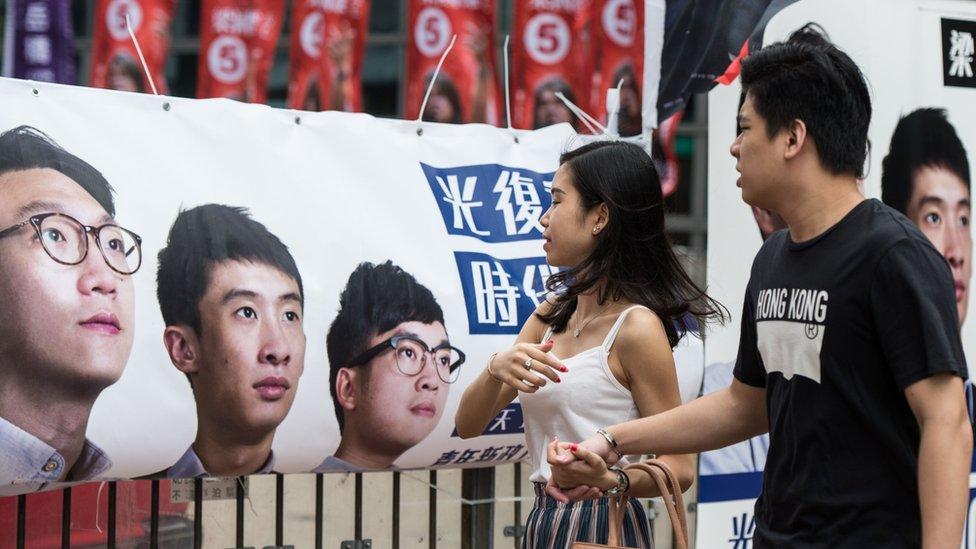
A number of young, pro-democracy activists have been elected to the Legislative Council
Many in Hong Kong are increasingly concerned about Beijing's interventions in its politics.
Mr Law said he would push for a referendum to "decide Hong Kong's sovereignty status" in 10 or 20 years.
"The tough battle [has] just begun and we have to be prepared and fight against the communist party," he said.

Who is Nathan Law?
Who are Hong Kong's new young lawmakers?
The 23-year-old student activist and former Occupy protest leader is the most high-profile of the pro-democracy names to win a seat.
He co-founded the Demosisto Party with well-known activist Joshua Wong and will now become the youngest lawmaker in Hong Kong.
Despite his youth, Mr Law says he proved during the election campaign that he is capable of being a legislator. "A lot of people are believing in me and my maturity," he said.
Convicted for his role in civil disobedience during the "Umbrella Protests", the soft-spoken activist has said the former British colony must be allowed a referendum on its future. He has said he does not want Hong Kong to become "just another Chinese city".

Thirty pro-democracy candidates were elected to the 70-seat LegCo on Sunday, up from 27 previously, meaning they retain the ability to veto major constitutional changes.
At least six young candidates who support self-determination or some level of greater independence for Hong Kong won seats, including Mr Law.
Several candidates were banned from running in the elections for failing to prove they no longer backed Hong Kong's independence.
In a statement, China's Hong Kong and Macau Affairs Office noted candidates had still been publicly advocating independence during the election campaign.
"We firmly support the Hong Kong SAR [special administrative region] government to mete out penalties according to law," the Chinese state news agency Xinhua quoted it as saying.
Tuesday's local edition of the state-owned China Daily newspaper said the election result could lead to "separatist ideas" being floated in the LegCo, AFP news agency reports.
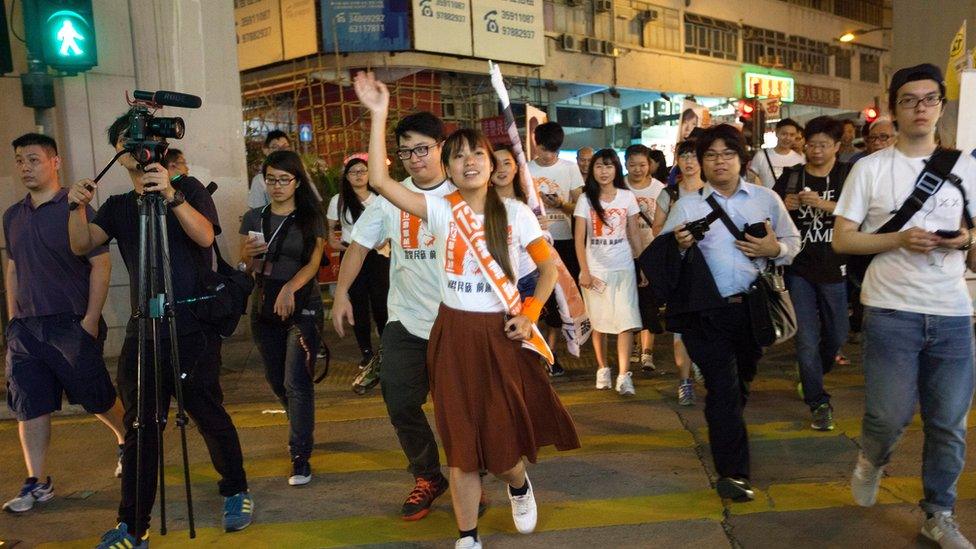
Many of the activists who ran for election cut their teeth in 2014's "Umbrella Protests"
While Hong Kong is a Chinese SAR, it is run under the principle of "one country, two systems".
This arrangement gives the former British colony a high degree of autonomy and allows it to preserve its economic and social systems until 2047.
Sunday's election was the first in the territory since street demonstrations in 2014, when central areas of Hong Kong were paralysed for weeks by mostly young protesters calling for more autonomy from China.
- Published5 September 2016
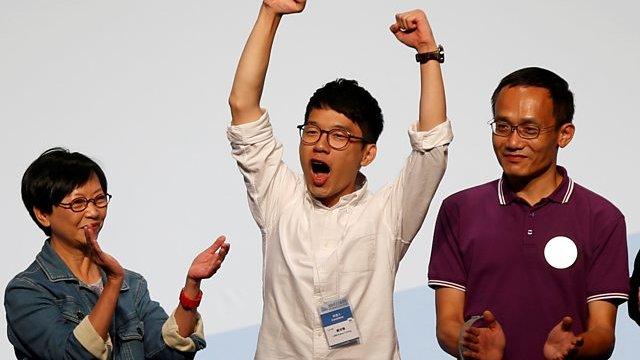
- Published3 September 2016

- Published6 September 2016
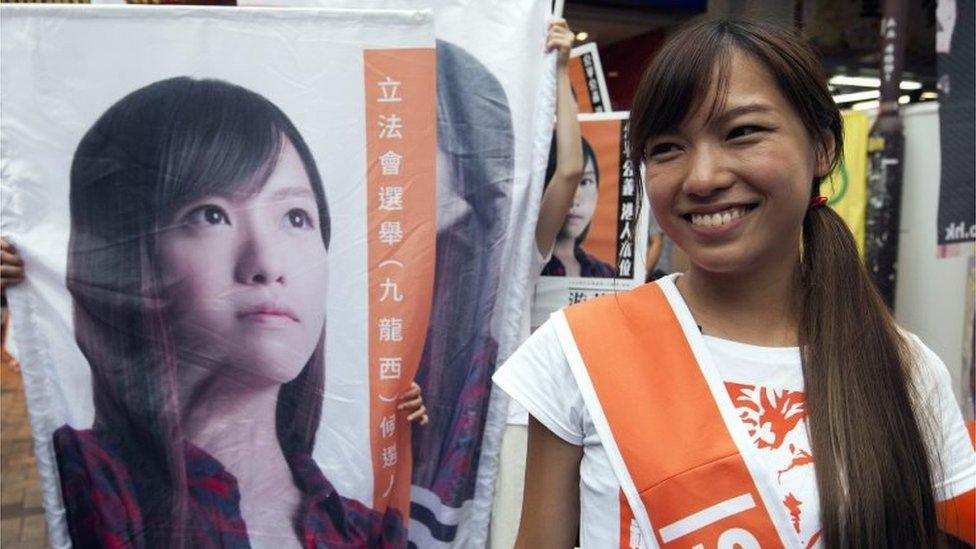
- Published5 September 2016
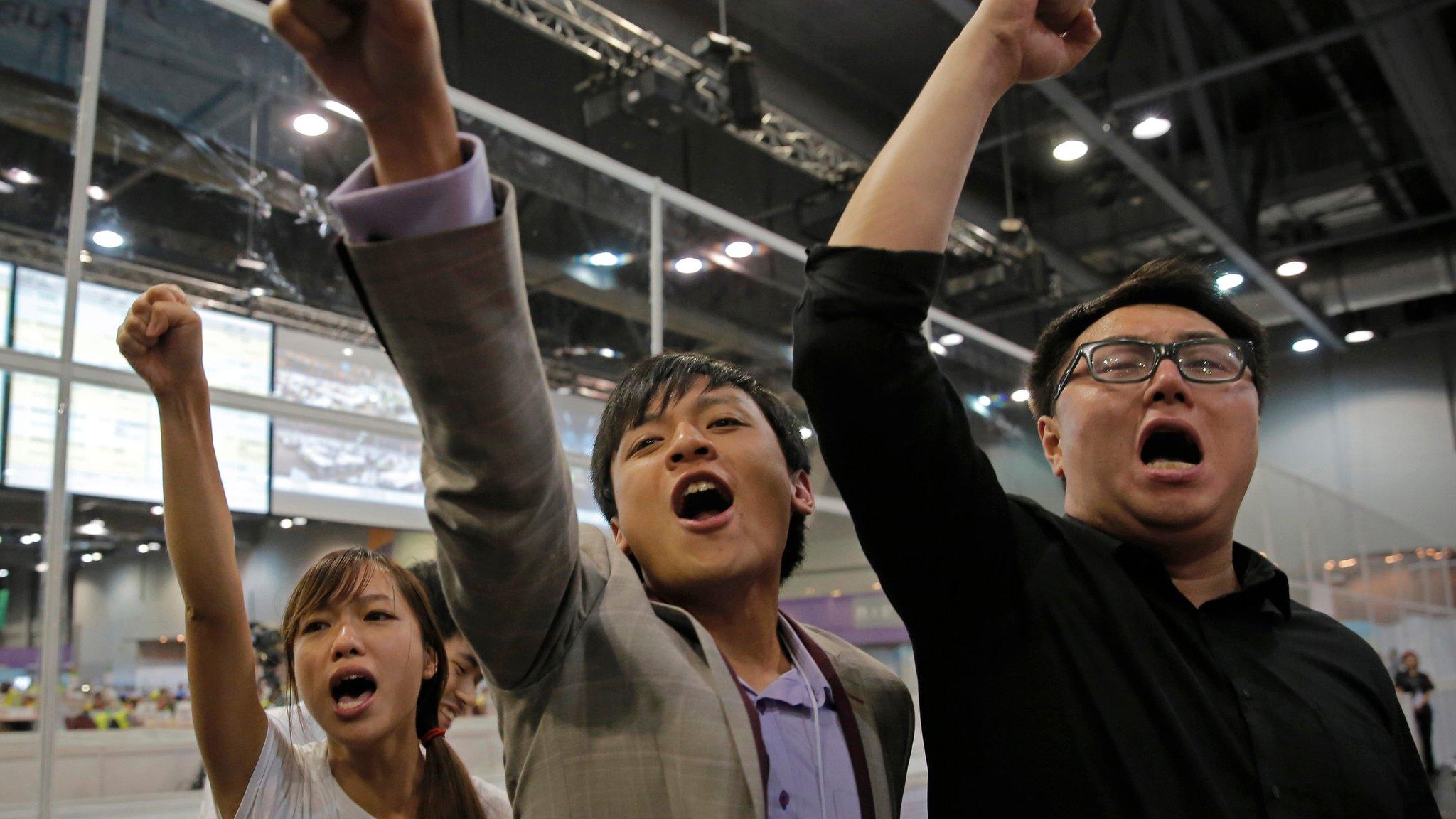
- Published2 December 2014
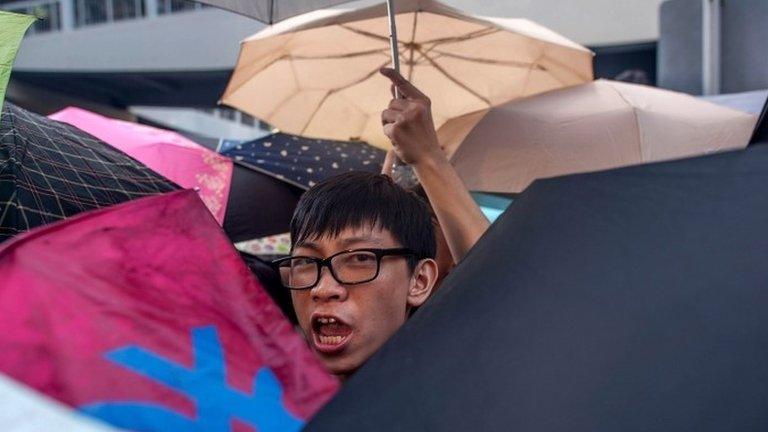
- Published24 June 2019
